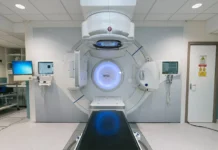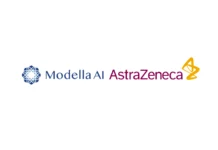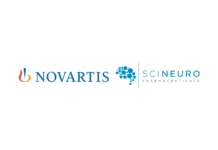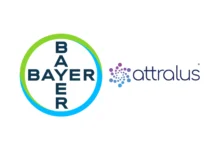Cytheris SA, a clinical stage biopharmaceutical company focused on research and development of new therapies for immune modulation, and the Cancer Immunotherapy Trials Network (CITN), a new initiative in immunotherapy funded by the National Cancer Institute with its Central Operations and Statistical Center (COSC) headquartered at Fred Hutchinson Cancer Research Center, Seattle, Washington, today announced the selection of recombinant human interleukin-7 (CYT107), the investigational multifunctional cytokine under development by Cytheris, as one of the first immunotherapeutic agents proposed for initial clinical trials at network institutions. The selection was announced following the first meeting of investigators from network institutions recently held in Bethesda, Maryland. CYT107 was chosen from an initial list of more than 20 potential agents based on reviews conducted at a series of three NCI immunotherapy workshops held between 2007 and 2009 during which participants prioritized agents with a high potential to serve as immunotherapeutic drugs for cancer. Experienced immunotherapy investigators from the 27 CITN research institutions in the U.S. and Canada will now submit proposals for use of CYT107 as well as other agents that may be made available to the network through partnerships with industry and the National Cancer Institute.
“The selection of CYT107 for study in immunotherapy trials conducted by the outstanding investigators from CITN member sites is a clear recognition of the potential of this cytokine to play an important role in the development of new approaches to the treatment of various cancers,” said Michel Morre, DVM, president and CEO of Cytheris. “We share the desire of all participants in the CITN program that this important NCI-sponsored initiative will lead to significant therapeutic advances that will be of direct and lasting benefit to the large and growing population of cancer patients.”
“With the support of the National Cancer Institute, CITN has established a network of top academic immunologists to conduct multicenter research on promising new agents that boost patients’ own immune systems to fight their cancer,” said principal investigator Martin A. “Mac” Cheever, M.D., a member of the Hutchinson Center’s Clinical Research Division and director of CITN. “Having selected CYT107 along with other promising molecules for testing in patients, we now look forward to conducting clinical studies that follow a pathway whose ultimate goal is to make effective immunotherapy agents broadly available for treatment of cancer.”
CITN will select and prioritize proposals for clinical study regimens based on the following criteria:
Regimens with clear immunologic endpoints likely to inform the next phases of drug development-specifically, those that prospectively and predictably increase the number of T cells specific for known and defined antigens
Developing regimens that can be applied in multiple circumstances by multiple investigators
Providing high-quality immunogenicity and biomarker data that elucidate mechanisms of response or failure and thereby facilitate the design of subsequent trials.
About the Cancer Immunotherapy Trials Network (CITN) – <http:www.CITNinfo.org>
The mission of CITN is to select, design and conduct early-phase trials using agents with known and proven biologic function and to provide the high quality immunogenicity and biomarker data essential to inform subsequent development pathways leading to the broad availability of these agents for treating patients with cancer.
By collaborating with member institutions, industry sponsors, and philanthropic foundations, the CITN aims to spearhead the design and conduct of trials leading to ultimate regulatory approval of promising agents and to advance the knowledge of antitumor immunity and its application in immunotherapy.
About Recombinant Human Interleukin-7 (CYT107)
Recombinant human interleukin-7 (CYT107) is a critical immune-modulator for immune T-cell recovery and enhancement. As a growth factor and cytokine physiologically produced by marrow or thymic stromal cells and other epithelia, IL-7 has a critical and, at some steps, a non-redundant stimulating effect on T lymphocyte development, notably on thymopoiesis and, downstream from the thymus, on homeostatic expansion of peripheral T-cells.
Clinical trials including more than 180 patients in Europe, North America, South Africa and Taiwan have demonstrated the potential of IL-7 to expand and protect CD4 and CD8 T-cells. Currently, Cytheris is conducting multiple international investigations of IL-7 in HIV, HCV, HBV, post-BMT and cancer. Additional studies include a NIAID/NIH-sponsored trial (ICICLE) in idiopathic CD4 lymphocytopenia (ICL); a cancer vaccine study in children with Ewing’s sarcoma family of tumors or similar genetic tumors sponsored by US National Cancer Institute; a collaborative study in metastatic breast cancer sponsored by the Céntre Leon Bérard of Lyon; and, a multi-company/institutional study (EraMune 01) sponsored by ORVACS (the international HIV organization funded by the French Bettencourt Schueller Foundation) aimed at attacking the HIV viral reservoir.
About Cytheris – http://www.cytheris.com
Cytheris SA is a privately held clinical-stage biopharmaceutical company focused on research and development of new therapies for immune modulation. These drugs aim at reconstituting and enhancing the immune system of patients suffering from cancer, chronic viral or bacterial infections such as HCV, HBV and HIV, or lympho-depleting treatments such as chemotherapy, radiotherapy, bone marrow transplantation (BMT) and hematopoietic cell transplantation (HCT). The company operates from its headquarters and laboratories in Issy-les-Moulineaux, a suburb of Paris, and its U.S. subsidiary in Rockville, Maryland.



















